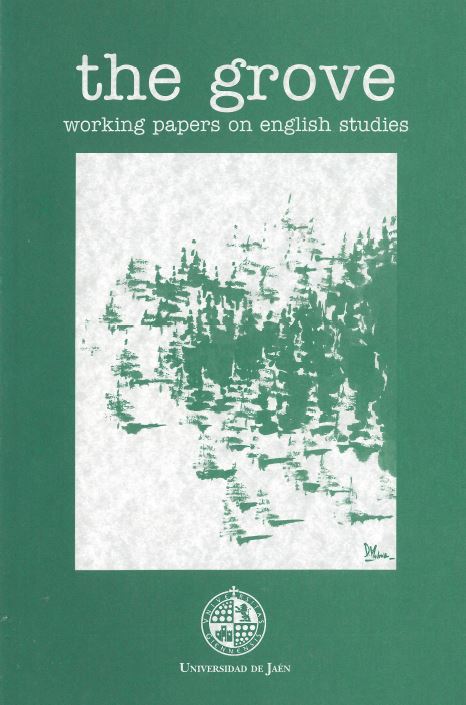Kim and Kip in the Mirror of Mimicry: A Postcolonial Study
Keywords:
ambivalence, colonizers, colonized, hybridity, identity, mimicryAbstract
The research paper aims to give an accurate account of how Kirpal Singh/Kip in The English Patient by Michael Ondaatje copies the socio-cultural and linguistic norms of the Europeans (colonizers) unlike Kipling’s Kim who emulates the Eastern people (colonized) and their culture. They are examples of going through a long drawn process of growing up, looking into the mirror of mimicry. Kip joins the English army as a grown up, learns the need to show affinity to the new culture by way of imitation, adopting their ways to weave a comfort zone. Being different could be an assaulting fact for both sides, Kip is quick to realize that. But his childish view of looking down upon his native culture is the irony of mimicry. It wipes out the original being to rewrite a new identity. Kip leaves the small community sprouted accidentally in the Italian monastery, showing traces of a stricken conscience. Kim, by the virtue of living in close company of Indians, adopts their habits and manners without any qualm, in a most unconscious manner. He never worries to look or sound his original self which he has not experienced for long. Thus, a kind of reverse mimicry is his fate and character when we look at him as an outsider living as an Indian native. The ambivalence of their characters, presented by both, is an interesting aspect of mimicry. In the paper, we have used the views of postcolonial and cultural literary theorists on mimicry, deliberating upon how with the effect of both the processes, Kip and Kim, consciously or unconsciously, get their national identity peeled off, affixing new hybrid identity.
Downloads
References
Anand, Mulk Raj. Untouchable. New Delhi: Mayfair Paperbacks, 1981.
Ashcroft, Bill, et al. Post-Colonial Studies: Key Concepts in Post-Colonial Studies. New York: Routledge, 1998. 139.
Besant, Walter. “Is It the Voice of the Hooligan?” The Living Age. 17 February 1900.
Bhabha, Homi K. The Location of Culture. New York: Routledge, 1994. 86-88.
Chandler, Daniel. Semiotics: The Basics. New York: Routledge, 2007. DOI: https://doi.org/10.4324/9780203014936
Derrida, Jacques. Writing and Difference. Trans. Alan Bass. London: Routledge, 1978.
Fanon, Frantz. The Wretched of the Earth. Trans. Constance Farrington. New York: Grove Weidenfeld, 1963. 39-43.
Hilger, Stephanie M. “Ondaatje’s The English Patient and Rewriting History”. Comparative Cultural Studies and Michael Ondaatje’s Writings. Ed. Steven Totosy de Zepetnek. Indiana: Purdue University Press, 2005. 38-48. DOI: https://doi.org/10.2307/j.ctt6wq1zh.7
Hornby, A. S. Oxford Advanced Learner’s Dictionary. Eds. Joane Turnball et al. Oxford: Oxford University Press, 2010. 852.
Jan Mohammed, Abdul R. “The Economy of Manichean Allegory: The Function of Racial Difference in Colonialist Literature”. Race, Writing, and Difference. Ed. Henry Louis Gates. Jr. Chicago: University of Chicago Press, 1986. 78-106.
Kipling, Rudyard. Kim. New Delhi: Rupa Publications India, 2012.
---. “Beyond the Pale”. Plain Tales from the Hills. Calcutta: Thacker Spink and Co., 1888.
Lacan, Jacques. “The Line and Light”. The Four Fundamental Concepts of Psycho-Analysis. Trans. Alan Sheridan. New York: Norton, 1978.
Lahiri, Jhumpa. The Namesake. Boston: Houghton Mifflin Harcourt, 2003.
Loomba, Ania. Colonialism/Postcolonialsim: The New Critical Idiom. 1998. 2nd ed. Abington, Oxon; New York: Routledge, 2005.
Macaulay, T. B. “Minute by the Hon’ble T. B. Macaulay, dated the 2nd February 1835”. From Bureau of Education. Selections from Educational Records, Part I (1781-1839). Ed. H. Sharp. Calcutta: Superintendent, Government Printing, 1920. Reprint. Delhi: National Archives of India, 1965. 107-117. Web. 16 Nov. 2018. <http://www.columbia.edu/itc/mealac/pritchett/00generallinks/macaulay/txt_minute_education_1835.html>.
Myers, Mitzi. “Of Mimicry and (Wo)Man: Infans or Forked Tongue?” Children’s Literature 23 (1995): 66-70. DOI: https://doi.org/10.1353/chl.0.0288
Ondaatje, Michael. The English Patient. London: Bloomsbury Publication, 2004.
Orwell, George. “Rudyard Kipling.” Horizon. GB, London. February 1942. Web. 13 Feb. 2018. <https://orwell.ru/library/reviews/kipling/english/e_rkip>.
Robinson, Mairi and George W. Davidson. Chambers 21st Century Dictionary. New Delhi: Allied Publishers Private Limited, 2001.
Said, Edward W. Orientalism: Western Conceptions of the Orient. New York: Vintage Books, 1979.
Shamsie, Kamila. God in Every Stone. New Delhi: Bloomsbury, 2014.
Singh, Amardeep. “Mimicry and Hybridity in Plain English” (08 May 2009). Web. 12 Jan. 2017. <https://www.lehigh.edu/~amsp/2009/05/mimicry-and-hybridity-in-plain-english.html>.
Thiong’o, Ngũgĩwa. Decolonizing the Mind: The Politics of Language in African Literature. Zimbabwe: Zimbabwe Publishing House, 1994.
Wegner, E. Philip. “Life as He Would Have It: The Invention of India in Kipling’s Kim”. Cultural Critique 26 (Winter 1993-94): 140-48. DOI: https://doi.org/10.2307/1354458
Downloads
Published
How to Cite
Issue
Section
License
Authors who publish with this journal agree to retain copyright and grant the journal right of first publication with the work simultaneously licensed under a Creative Commons Attribution License that allows others to share the work with an acknowledgement of the work's authorship and initial publication in this journal. Also, authors will retain the rights on their work, even if they will be granting The Grove. Working Papers on English Studies a non-exclusive right of use to reproduce, edit, distribute, publicly communicate and show their work. Therefore, authors are free to engage in additional, independent contracts for non-exclusive distribution of the works published in this journal (such as uploading them to an institutional repository or publishing them in a book), as long as the fact that the manuscripts were first published in this journal is acknowledged.
















